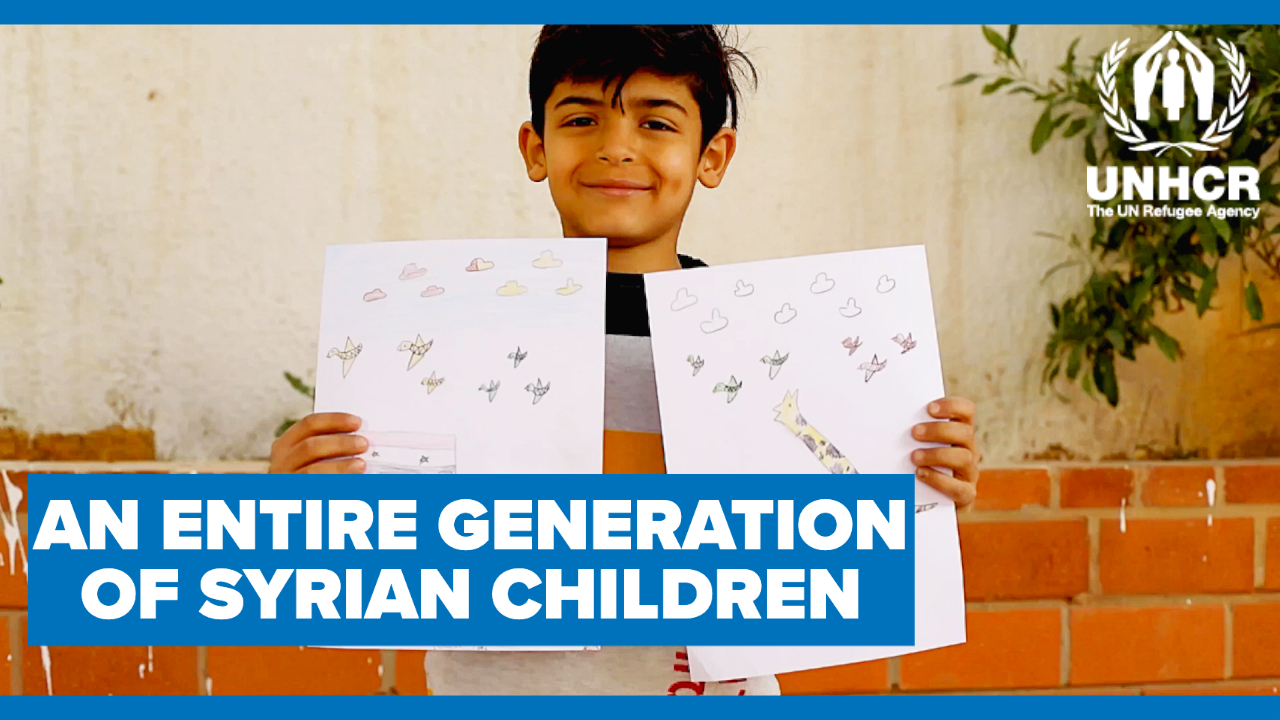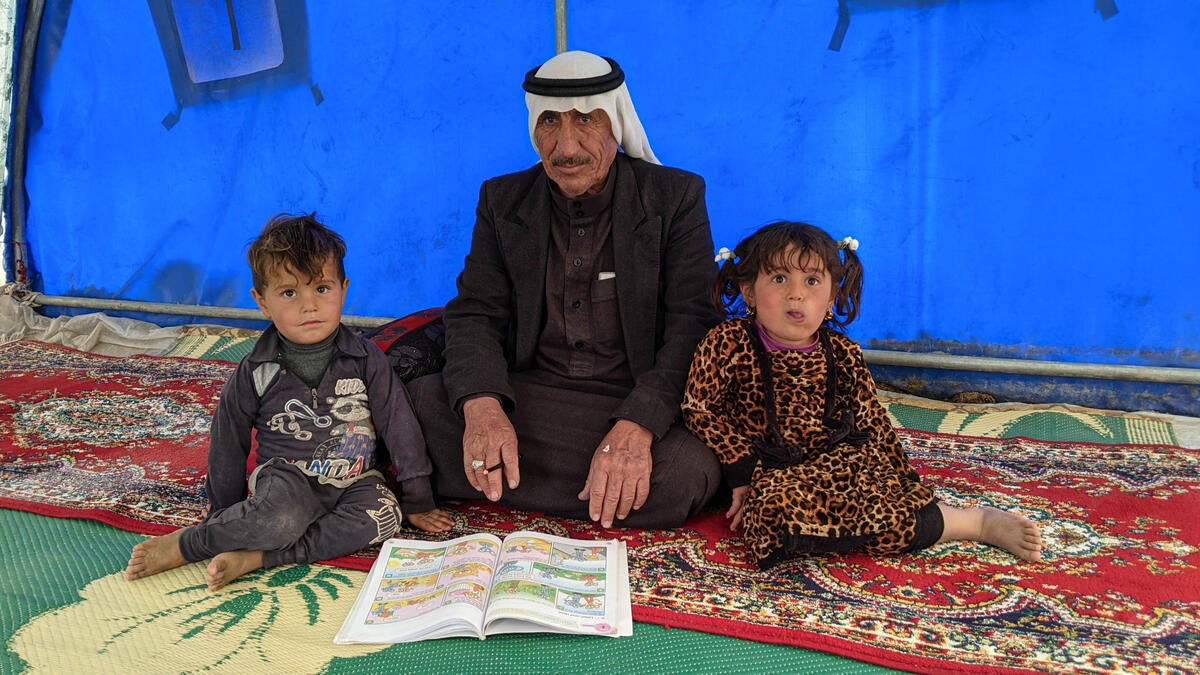Displacement of people continues to rise in Anbar, Iraq
Displacement of people continues to rise in Anbar, Iraq
As the crisis in Iraq's Anbar Province enters its third month the security situation continues to deteriorate. We have reports that families are now being displaced for a second time in various locations across the province, moving westwards from previously safe locations including Al-Habaniya, Al-Falahat village, Al-Nassaf village, Al-Azragiyah village and Al-Saqlawiyah. During the last week the number of displaced people in the town of Heet and surrounding areas - which lies to the northwest of Ramadi - has increased by some 25,000-30,000 people.
Elsewhere in Anbar, an inter-agency mission this week by UNHCR, WFP and UNICEF returned to Baghdad yesterday after assessing the current living conditions and the needs of displaced people living in Al-Obaidy, some 450 kilometres northwest of Baghdad in the Al Qaim area.
Due to the prevailing security situation the mission was forced to postpone part of their assessment. Al Qaim district hosts some 5,000 Syrian refugees, some 2,000 of them are in camp Al Obaidy while others are in host communities. The team met with people displaced to temporary houses and two collective shelters in Al-Obaidy town over the past four days.
The team identified many people with specific needs, particularly female-headed-households with large numbers of children. In one particular visit, three female-headed-families were cramped together in one small house with 13 children. While the local communities have generously assisting the displaced, people are still in need of food and healthcare. Families living in unfinished houses lack blankets, mattresses, cooking facilities and clothing. As an immediate step UNHCR is distributing 300 core relief items to 300 families the team visited.
The humanitarian needs of the displaced are growing rapidly. Prolonged displacement is putting pressures on both the displaced and host communities as they begin to exhaust their resources. UNHCR and other humanitarian agencies are receiving an increasing number of requests for humanitarian assistance and support. UNHCR and partners are continuing to conduct assessments of the humanitarian needs. At present the shortage of shelter remains one of the most pressing issues.
Close to Baghdad, the city of Fallujah remains under siege, the roads remain closed and there are reports of shortages of fuel, food and other basic items. Armed clashes have been reported in north, south and the east of Fallujah even during the 72-hour ceasefire initiated by the government of Iraq of last week which has now ended.
The situation in Ramadi is also volatile. Shelling and clashes have continued in recent days in the city and in rural neighbourhoods. As the situation deteriorates in the Al-Malab, Al-Bothaib and 20th Street areas, small groups of residents have fled and headed to Heet. The local council in Heet is still welcoming those fleeing, despite the significant burden on the local infrastructure, lack of sufficient accommodation and overstretched services. The district already accommodates some 11,250 displaced families.
To the northeast of Anbar, the first UN humanitarian assistance has in the past few days also reached some 200 displaced families in dire conditions in Sulayman Beg in Salah Al-Din governorate. UNHCR delivered 200 core relief items kits to these families, who fled due to clashes occurred last week in in the north-eastern part of Salah Al-Din.
As of 6 March the number of people displaced in Anbar and the other governorates is approximately 380,000. This represents 63,494 families. 42,059 families have been displaced in Anbar, the largest governorate in Iraq and 21,435 families have been displaced in other governorates across the county.
On 5 March 2014 the Ministry of Migration and Displacement and the UN launched the Strategic Response Plan to address the immediate humanitarian needs of people affected by the ongoing fighting in Anbar. The plan calls for $103.7 million to cover the provision of assistance to 240,000 internally displaced people as well as host communities and those stranded in conflict-affected areas.
UNHCR requires US$26,351,265 to address humanitarian needs of people displaced by the crisis in Anbar over the next six months. These needs are currently 11 per cent funded.
For more information on this topic, please contact:
- In Geneva: Adrian Edwards on mobile +41 79 557 9120
- Dan McNorton on mobile +41 79 217 3011
- In Baghdad: Natalia Prokopchuk on mobile +964 780 921 7341








